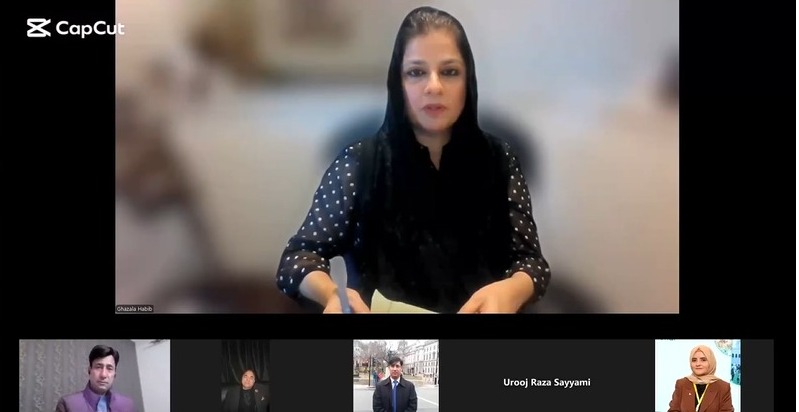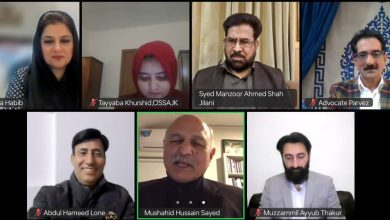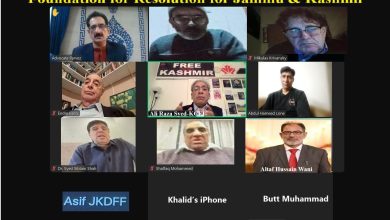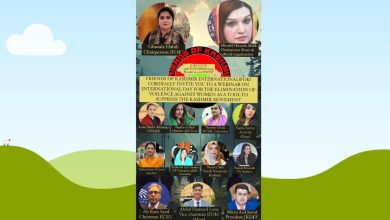Webinar highlights urgency of Kashmiris’ right to self-determination

Islamabad: In an online event organized by Friends of Kashmir International, influential voices gathered to discuss the urgent need for the realization of Kashmiris’ right to self-determination.
According to Kashmir Media Service, the webinar, titled “Kashmir’s Right to Self-Determination,” featured prominent figures advocating for a peaceful resolution to the longstanding Kashmir dispute. Speakers included Ghazala Habib, Chairperson of Friends of Kashmir International, Raja Sikander Khan, Chairman of the Global Pakistan Kashmir Supreme Council, Dr. Shagufta Ashraf, Assistant Professor, journalist and columnist Mazhar Barlas, Tayyiba Khurshid, Research Officer at the Center for International Strategic Studies AJK, and Abdul Hameed Lone, Vice Chairman of Friends of Kashmir International, among others.
Dr. Shagufta Ashraf highlighted the global indifference to the Kashmir crisis, asking, “How long will the world, particularly the United Nations, turn a blind eye to a crisis that threatens global peace?” She strongly condemned India’s oppressive actions in Indian illegally occupied Jammu and Kashmir and urged international intervention, calling on the UN to pressure India into engaging in meaningful negotiations with Pakistan and Kashmiri leadership to resolve the issue.
Tayyiba Khurshid discussed the challenges posed by contemporary geopolitical dynamics to the implementation of UN Security Council resolutions on Kashmir. Emphasizing Pakistan’s current non-permanent seat on the UN Security Council, she urged the country to leverage its position to push the Kashmir cause to the forefront of international discourse.
Abdul Hameed Lone reiterated the critical importance of adhering to UN resolutions on Kashmir, underscoring the role of Friends of Kashmir International in sustaining the struggle on both national and global fronts. He stressed the necessity of grassroots engagement to strengthen awareness and solidarity with the Kashmiri cause.
Raja Sikander Khan called for unity among all stakeholders supporting Kashmir and proposed the creation of “Kashmir Desks” in various countries to streamline advocacy efforts. He also highlighted the challenges posed by India’s financial and political influence on international forums, emphasizing the need for a strong and stable Pakistan to advance the Kashmir agenda.
Ghazala Habib, in her concluding remarks, thanked the participants and stressed the need for actionable steps to support Kashmiris. She proposed revitalizing institutions like the Kashmir Liberation Cell, establishing “Kashmir Corners” in universities to engage youth, and forming an international committee to amplify the plight of Kashmiris and demand their right to self-determination.
The webinar reaffirmed the enduring importance of Kashmiris’ right to self-determination, stressing the need for coordinated and sustained advocacy efforts. The event’s recommendations offer a roadmap for future engagement, ensuring that the Kashmir issue remains a central focus in global discussions.








